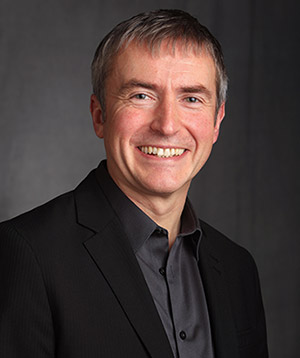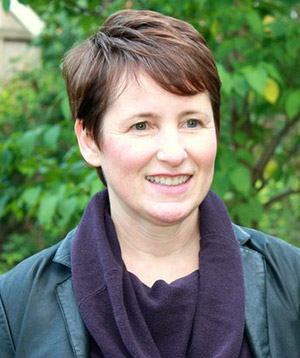Schedule
Keynote Speakers
David A. Green
Intentionally in Tension: Educational Developers Leading From the Middle
 Download the keynote presentation
Download the keynote presentationIn joining the field of educational development, most of us have undergone some form of transformation. We have changed discipline, adjusted status, and often raised our visibility – and vulnerability – on our campuses. We have entered an enlivening middle ground that lies somewhere between regular academics and the administration, between faculty and students, between regulation and practice, between Education (with a capital E) and other disciplines, between training and counseling, and so on. It is a curiously hazy space with deep responsibility and often minimal authority.
During our transformation, many of us have held onto vestiges of our previous lives, imprinted in our ways of thinking and practising, in our sense of what is the right thing to do. These imprints have led us to arrange our educational development work in contrasting ways, to use different tools and methods, and to draw on varied frameworks to reach our goals.
And our new home has transformed us, too; made us shift a little to accommodate – or creatively resist – the ever-changing higher education landscape around us; helped us spend more time on process, less on output, so that we understand one another – and our colleagues – better. Perhaps in that process of transformation, in losing parts of our past identities and gaining new ones, we can offer our institutions something both exciting and (for us) risky: the notion of leading from the middle.
Leading from the middle – transformational leadership that might actually work in higher education – is not an easy ask. It requires us intentionally to maintain numerous tensions: to step over lines without encroaching; to identify the cracks without destroying the edifice; to be leaderly, yet unassuming. In this session we’ll be thinking about how these and other tensions may help educational developers take on the mantle of transformational leadership. We’ll explore whether our hazy middle ground affords us both licence and cover to make our professional homes more creative and more enjoyable places for everyone to learn.
Bio: David A Green is Director of the Center for Faculty Development at Seattle University in Seattle, WA. He received his BA and PhD in German Studies from the University of Birmingham (UK), and an MA in Education and Professional Development from Birmingham City University (BCU, UK). Before becoming a educational developer, David was Chair of Languages and International Business at BCU and has teaching experience at the graduate and undergraduate level in foreign language, literature, cross-cultural management, communication, and higher education. At Seattle University, he continues to teach undergraduates in International Studies. He publishes research on the positioning of educational development, on academic identity, and on academics’ perceptions of both student characteristics and the field of teaching and learning. David is a Trustee and Board member of the International Consortium for Educational Development (ICED), was co-editor of the International Journal for Academic Development from 2011–14, and is co-author (with Celia Popovic) of Understanding Undergraduates: Challenging Our Preconceptions of Student Success (Routledge).
Mary Wilson
Working in the Borderlands
 Download the keynote presentation
Download the keynote presentationIn our daily practice as Educational Developers, it is not unusual for us to find ourselves operating in the borderlands of complex and shifting educational boundaries defined by the historical, geographic, political, disciplinary and cultural differences that serve to define our institutions and the individuals who work within our colleges and universities. Collectively - at this moment and from our positions - we have exciting opportunities to work across the spaces that separate our colleges and universities and increase the pathways that connect us. The borderlands is a uniquely privileged and challenging space to occupy and one that calls upon us to develop our skills in many capacities including cultural analysis and diplomatic negotiation. Please join me in a conversation to reflect on the EDC sessions you have attended, explore the nature of the borders we encounter in our work, and consider the borders that you work to maintain in your practice, those you work to push out or break down, and those you wish to establish.
Bio: Mary Wilson is the Director of the Centre for Academic Excellence at Niagara College. She returned to her childhood home in the Niagara Region in 2013 after serving as the founding Director of the Centre for Innovation in Art & Design Education (CIADE) at OCAD University, and as an Educational Developer at the University of Guelph. Mary started her career at the University of Guelph in Student Affairs, establishing Guelph’s award-winning Supported Learning Group program in the Learning Commons, as well as the Canadian Centre for Supplemental Instruction at Guelph – one of six national centres world-wide. While at Guelph, Mary was also an instructor in the First Year Seminar program and earned recognition for her teaching from the Student Senate Caucus. Mary holds a Doctorate in Education from OISE/UT and is interested in the history of post-secondary curriculum development, including the intentional development of co-curricular programs and supports to enrich the student experience, and the theory and practice of post-secondary curriculum reform.